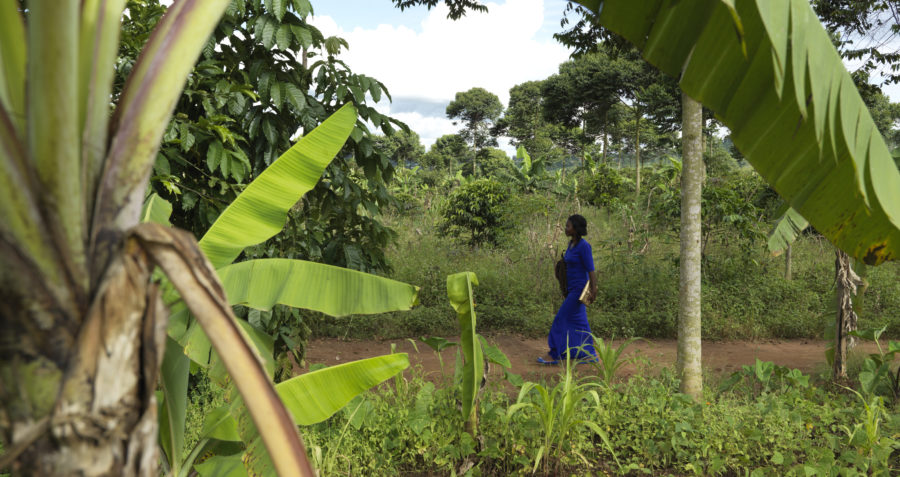HIV prevention in the time of COVID-19
 © Peter Caton for READY
© Peter Caton for READY
It is vital that HIV prevention stays on the agenda during the COVID-19 pandemic.
COVID-19 is now a global pandemic, affecting millions of people around the world. Many, just like me are living in lockdown, working from home while juggling childcare and everyday chores. Others live in far worse conditions, unable even to get basic prevention advice let alone comply with it. It’s hard to socially distance if you share a one room home with your family, or if you rely on going to work just to eat and pay your rent. It’s pointless to talk about hand washing if you don’t have access to running water, clean or otherwise.
As the COVID-19 crisis unfolds in the global north, we are witnessing the near collapse of hospitals. Even in well-funded, well managed health systems, there are shortages of staff, of protective gear, of lifesaving medical equipment and even of beds. Nurses, doctors and many other health professionals are putting their own lives at risk daily.
HIV prevention services shutting overnight
As an AIDS activist stationed in my new, improvised home office, I cannot stop thinking about what this new pandemic means for the millions of people living with HIV, especially those in countries where health systems are already desperately under-funded and fragile.
Those of us working in HIV know that AIDS is not over. While we have made great strides in expanding access to treatment, more than 13 million people still are not accessing the medicines they need, and globally the number of new infections has barely reduced over recent years – at 1.7 million in 2018. This flatlining has happened much more quietly than COVID-19, but it is a crisis, which pushes the end of the AIDS epidemic even further into the distance.
As COVID-19 tightens its grip, governments around the world are taking critical decisions. So are international donors and UN agencies. It would be easy for them to say that during this new emergency, the HIV prevention crisis is not a priority. Already, the partners that we work with are warning us of HIV prevention and harm reduction services shutting overnight, and about shortages of condoms, HIV medicines and methadone. COVID-19 has revealed the faultlines in health systems and societies, where critical HIV prevention and treatment programmes are considered add-ons to healthcare services and not integral pillars. And so how to continue preventing and treating HIV in the context of COVID-19 – and how as an advocate to continue demanding scale up of these lifesaving services – has become the question that keeps me awake at night.
Keeping HIV prevention on the agenda
During this unprecedented period, it’s clearer than ever that communities have a critical role to play in sustaining services and keeping people safe. Since the earliest days, communities and community organisations have been on the frontline of the HIV response, and already Frontline AIDS partners are adapting to protect people living with HIV and those most at risk from COVID-19. In responding to the COVID crisis, governments and donors must recognise communities as an integral part of health systems – and must resource them accordingly.
At the same time, as the HIV community we must organise and advocate together to ensure that HIV prevention stays on the agenda, politically and financially. The Global HIV Prevention Coalition in particular needs to step up. Its job in the short term will be insisting that existing HIV prevention services remain in place and fully funded throughout the COVID-19 crisis, and in ensuring that shortages of condoms and other prevention supplies are quickly addressed. In the longer term however, its central role will still be to persuade governments, donors and UN partners to address the barriers that are holding back progress – political leadership, policy gaps, financing and lack of implementation at scale – and urgently. Since the Coalition was established in 2017, very little has been achieved on these areas, and it is no wonder then that among some of the most marginalised communities, new HIV infections have actually increased.
The prevention shadow reports that Frontline AIDS partners worked on last year show an almost universal lack of political leadership, particularly in relation to harmful laws and policies. This desperately needed to change in 2020, and it still does, the COVID-19 crisis notwithstanding.
Communities taking the lead
There are already fantastic examples of communities taking the lead. Frontline AIDS partners have been busy for weeks, hosting info sessions on Facebook live, setting up community hand-washing points and negotiating longer prescriptions for antiretroviral treatment and take home methadone with their governments and health providers, to minimise the frequency with which people living with HIV or those taking opioid substitution therapy need to travel. In South Africa, sex worker-led organisations are campaigning to ensure sex workers are included in financial relief offered to workers affected by loss of earnings. The International Network of People Who Use Drugs (INPUD) has produced guidance for people who use drugs on how to protect themselves during the pandemic, including how to prepare for potential closures of harm reduction services and changes in the drug supply.
All of these organisations are acting fast to ensure that they can tackle both HIV and COVID-19. If governments and donors don’t follow, they run a serious risk of going backwards, losing the gains we have made and the resources we have already invested. Addressing COVID-19 is a moral imperative which all of us – the HIV community especially – need to respond to. But as we do, let’s not allow our current HIV prevention crisis to worsen.
Matteo Cassolato is HIV Technical Lead at Frontline AIDS.
Tags
COVID-19HIV prevention


